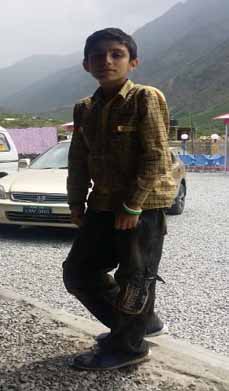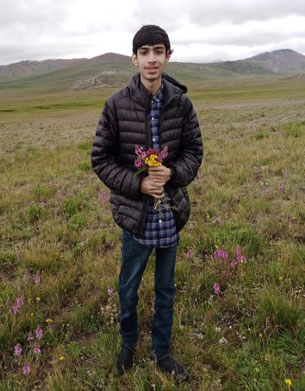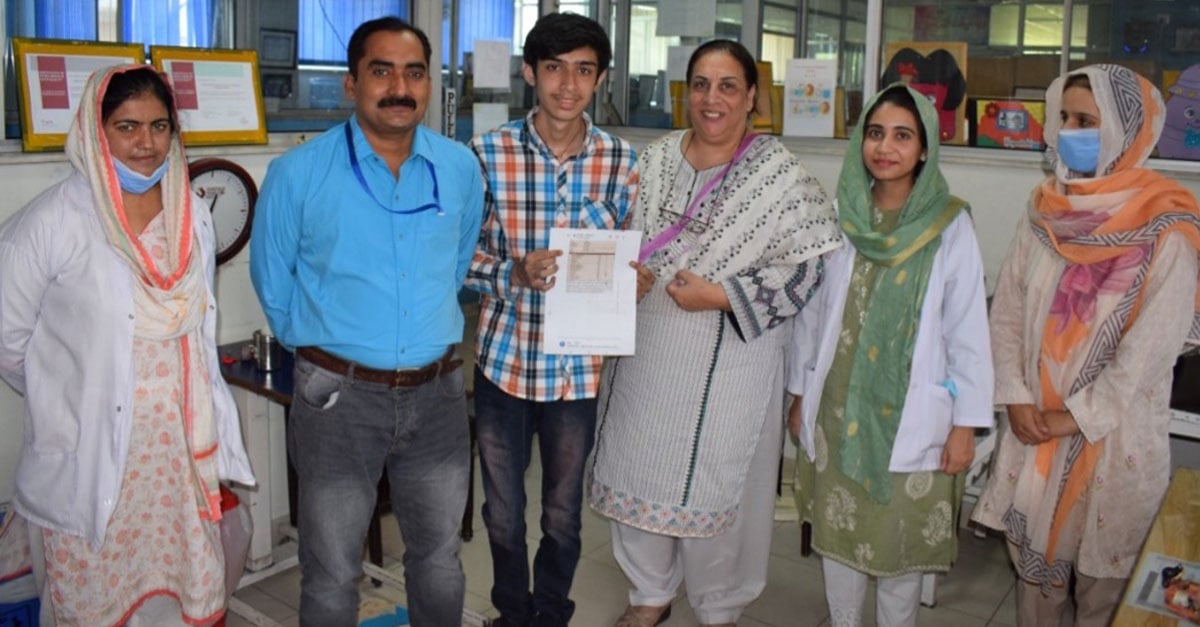Over 100,000 mg of non-factor replacement therapy were donated to Pakistan through the WFH Humanitarian Aid Program in 2021. This new therapy, which supplements the donated factor going to the country, is having a major impact on the quality of life of local people with bleeding disorders (PWBDs). The story of Ali Haider—a young man who was diagnosed with severe Hemophilia A when he was a year old—is a telling example.
Haider’s condition was serious enough that his parents moved from Gilgit in the north of Pakistan with their three children to Rawalpindi so that they could be closer to an HTC. Initially his care was for acute bleeds, which meant that his day-to-day life was constantly being interrupted. He missed school and became depressed. His parents were also deeply affected by his condition, and worried about his future.


In 2020, the WFH Humanitarian Aid Program began delivering the first shipments of donated non-factor replacement therapy to Pakistan. Since the Rawalpindi HTC had already collaborated extensively with the Program for years, they were ready to begin introducing this novel treatment to their patients. For Haider, the impact of the treatment cannot be understated. He has gone from living bleed-to-bleed to enjoying a completely bleed-free life since his treatment began. He goes to school like any other boy his age, and both he and his family are happy and excited about his future. He even scored 88% in his grade 10 national exam and wants to be a mathematician.
Since 2015, almost 50 million IUs of factor were donated to Pakistan. Nearly 9.5 million IUs of factor—and over 100,000 mg of non-factor replacement therapy—were donated to the country through the WFH Humanitarian Aid Program in 2021. To find out more about the WFH Humanitarian Aid Program, please click here.
About the WFH Humanitarian Aid Program
The WFH Humanitarian Aid Program improves the lack of access to care and treatment by providing much-needed support for people with inherited bleeding disorders in developing countries. By providing patients with a more predictable and sustainable flow of humanitarian aid donations, the WFH Humanitarian Aid Program makes it possible for patients to receive consistent and reliable access to treatment and care. None of this would be possible without the generous support of Sanofi Genzyme and Sobi, our Founding Visionary Contributors; Bayer and Roche, our Visionary Contributors; Grifols, our Leadership Contributor; and our Contributors, CSL Behring and Takeda. To learn more about the WFH Humanitarian Aid Program, visit www.treatmentforall.org.













